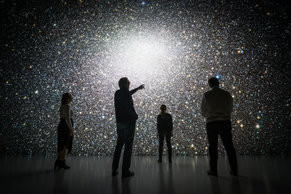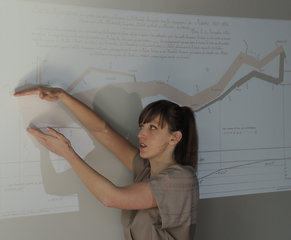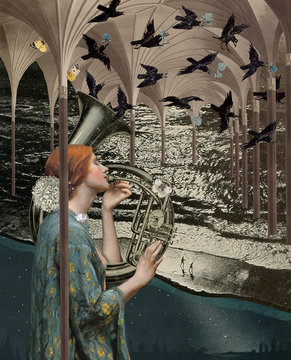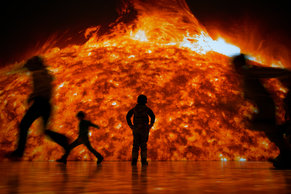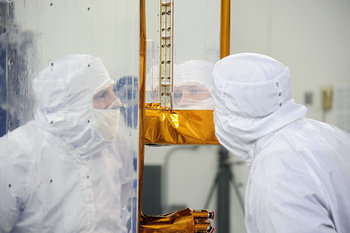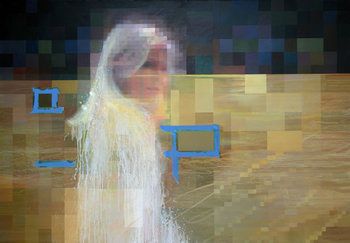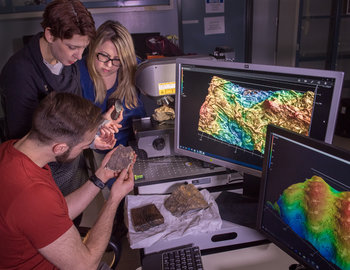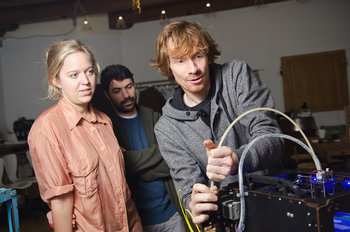|
| |
Free will is the ability to do something that is undetermined by the past or present. The following are illustrative examples.Cause & EffectCause and effect is the relationship between events such that one event creates another. If free will exists, it is a type of cause that would make the universe unpredictable and spontaneous as nothing in the past or present would dictate what you might do.
FreedomFreedom is the ability to make your own decisions and action them. For example, freedom from some oppressive force that controls you. Zero freedom would obviously prevent free will. IntentionalityIntentionality is the ability of a being to self-define its intentions and therefore its motivations, decisions and actions. This would be a basic requirement for free will.
Hard DeterminismHard determinism is the theory that free will isn't possible because the future is predetermined.Causal DeterminismThe belief that the future is predetermined because the past causes the present which causes the future. Scientific DeterminismThe theory that the future behavior of every particle in the universe is predetermined by its present state such that the outcome of the future is certain. This is a sum-of-parts argument that assumes complex systems can be fully explained by looking at their parts. Quantum IndeterminacyIn the 19th century, scientific determinism was a reasonable scientific position because the universe was viewed as a machine-like system driven by cause and effect. Modern quantum theory makes it clear that at the smallest scale, the universe is unpredictable and seemingly spontaneous.Biological DeterminismThe sum-of-parts theory that an aspect of biology such as neurons or DNA is the root cause of all the actions and reactions of an organism such that they lack free will. In the past 50 years, there have been large advancements in the understanding of DNA such that this is currently a popular explanation for many things. Chaos TheoryChaos theory simply says that small events can trigger large changes such that the world is very unpredictable. This says nothing about free will or whether such events are predetermined. However, chaos theory is one of the ways to debunk sum-of-parts theories or simplistic models of cause and effect that are often used in arguments about free will.Theological DeterminismThe theory that the universe is preordained by a divine being or beings. This often rejects free will. However, some varieties of theological determinism say that free will does exist and that the future is predetermined only in the sense that a deity can see the future. FateFate is a concept in theological determinism whereby events in an individual's future are predetermined without regard to cause and effect.Plans The Dude abides.
~ The Dude, The Big Lebowski, 1998 Some philosophies and religions use a softer type of fate known as a plan that originates with the universe or a deity. This plan can be resisted with your free will. A common theme of storytelling is that a character goes through great pain trying to resist this plan only to accept it in the end. A less common type of story has the character calmly follow each twist in their fate such that they abide to the plan.CompatibilismYou are not controlling the storm, and you are not lost in it. You are the storm.
― Sam Harris, Free Will The idea that the future is predetermined but that free will exists. For example, a theory that views people as the universe itself as opposed to the common assumption that we are separate entities.LibertarianismMetaphysical libertarianism is the theory that free will exists and that it makes the future undecided.IntuitionIntuition is information or emotion that originates with processes unknown to the thinker. This is a possible source of free will as it is not well understood where intuition originates -- although it is often assumed to be a product of the unconscious mind.Cartesian DualismCartesian dualism is the theory that the mind is more than just the brain and body. This would suggest that your mind can't be fully predicted by your physical state.Causa SuiCausa sui is the theory that people have a spontaneous self that is the cause of many of their actions and characteristics. Many World's InterpretationThe theory that everything that has non-zero probability does happen whereby each path creates a different universe. This allows for free will whereby it would define the probabilities and therefore the universes that get created.IdealismAbsolute idealists view the world as completely driven by intangible minds such that physical reality is flexible or an illusion. This could be viewed as pure free will whereby physical cause and effect can be transcended.No-selfSome religions view the separation of you from the universe as an illusion. This makes free will a little complicated as you are essentially an illusion such that your will is also an illusion but does exist in the sense that illusions exist.KarmaKarma is a type of spiritual cause and effect. In models of reincarnation, this may be presented as spanning multiple lives and typically implies free will whereby if you choose to do good -- good eventually flows back at you. Wild Fox KoanThe Wild Fox Koan is a well-known story from Zen Buddhism wherein a monk is cursed to spend 500 years as a wild fox for claiming that the enlightened transcend cause and effect. This is interesting as Zen typically emphasizes paradoxical thinking and extreme spontaneity that resembles free will. At the end of the Wild Fox Koan, the student who had been cursed suddenly strikes his master. The master asks why and the student replies that he anticipated the master was about to strike him. The master laughs in delight as the student has learned about cause and effect. This is interpreted as an illustration of the great complexity of cause and effect such that seeming spontaneous acts also have a cause.
Cause And Effect
This is the complete list of articles we have written about cause and effect.
If you enjoyed this page, please consider bookmarking Simplicable.
© 2010-2023 Simplicable. All Rights Reserved. Reproduction of materials found on this site, in any form, without explicit permission is prohibited.
View credits & copyrights or citation information for this page.
|




